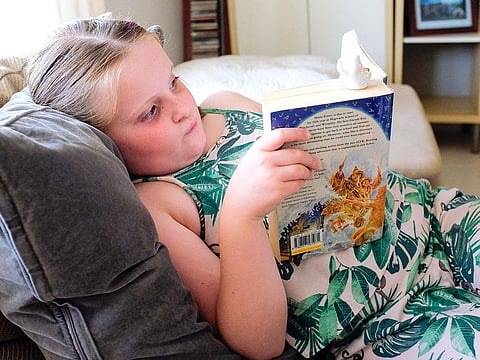The Multicultural King of Borrowed Words
English takes lots of words from other languages, further enriching itself

Contrary to popular belief and expectation, English is not the most widely spoken language in the world. Only 983 million people speak it as opposed to 1.1 billion who speak Mandarin Chinese. Which makes English the first runner-up, with the second runner-up spot going to Hindustani (544 million) in a close finish with Spanish (527 million). Now I’m not an expert in Mandarin Chinese and the extent of my vocab would make a baby Mandarin blush. But I wonder if the language has the same propensity as English to borrow and incorporate a lot of words from other languages; from Mandarin Chinese itself.
English has adopted words such as dim sum, bok choy, kung fu, lychee, yin and yang, hoisin and a lot of others, including, wait for it … coolie. Which I thought was an Indian term first before it got appropriated by English. Now I’m told it could be Mandarin Chinese. Watch this space, as they say, while I get my investigative nose out there and scour a dozen or so books on etymology. But back to English.
Thanks to all those early explorers who set out in the 1400s and 1500s on perilous high seas in search of the spice islands, they took back with them not only shiploads of pepper, cinnamon and cloves, but handfuls (or mouthfuls) of new terms, such as catamaran, bungalow, khaki, jodhpur, dungaree and again, wait for it, hullabaloo! Which I thought was a true-blue English term. Turns out, it has Persian, Urdu and Hindi forebears.
Now that I think of it, ‘halla’ is frequently used, somewhat in a slang way, to describe a ruckus, with a group of halla makers being called a ‘halla party’. And it also turns out that ‘halla bol’ is still used in certain areas, as a Hindi term, ‘bol’ of course meaning to speak. Therefore, to speak with a lot of ensuing confusion, as, for example the Tower of Babel.
English borrows from Spanish, as well. Words like fiesta, macho, aficionado, patio, matador are a few examples. Arabic which is placed fifth in the top ten languages worldwide has donated words to English that include algebra, coffee (from qahwah), lemon (from limun) and saffron (from za’faran) to name a few.
Richer for showing penchant for change
Malay, which is the sixth most spoken language has not escaped the grasp of the English tongue which has borrowed (or incorporated) words such as rattan, tea (which comes from the which in turn was derived from the Hokkein t’e), paddy (from padi which is rice), compound (from kampong) and ketchup! Russian, which is seventh on the list, has contributed babushka, kremlin, balaclava, gulag, cosmonaut, apparatchik and Bolshevik.
Portuguese has given English albatross, albino, bossa nova, breeze, cashew, flamingo, jaggery and marmalade. And French, which rounds out the top ten, has offered up chauffeur, bourgeois, chic, déjà vu and eau de Cologne, again to list just a few.
One would have to agree that long, long before the term multiculturalism came into usage, English was at the forefront, accepting and assimilating so that speakers of varied nationalities might find familiarities in the tongue that would then encourage them to stay the course a little longer and learn the language even more fully. I’ve heard a lot of tosh about English being ‘the great borrower’. I’m sure it’s ever happy to lend as well if other tongues wished to barter words.
I’ve always been of the view that a language that doesn’t coin new words or accept and draw from other influences is doomed to die, or stagnate at best. A language is richer for showing a penchant for change. And English has done this admirably. It’s what, ergo, keeps it tres chic.
Kevin Martin is a journalist based in Australia.


